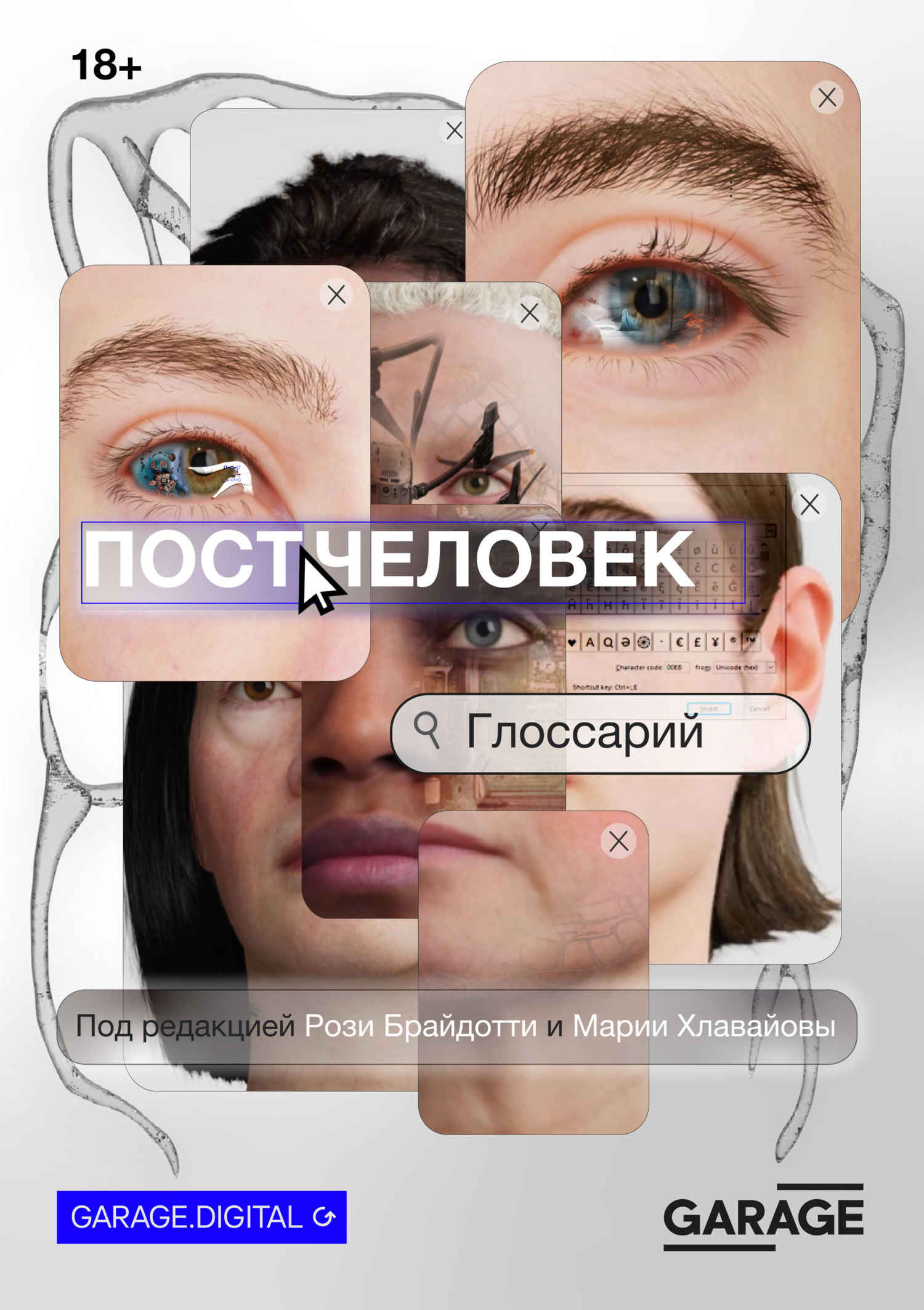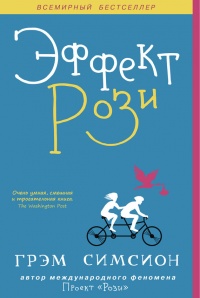Читать книгу - "Постчеловек: глоссарий - Рози Брайдотти"
Аннотация к книге "Постчеловек: глоссарий - Рози Брайдотти", которую можно читать онлайн бесплатно без регистрации
В свете новых вызовов, охватывающих современное общество, концепт человека как таковой, а также проблема его взаимодействия с искусством, точными и гуманитарными науками претерпели существенные изменения. Данный процесс, называемый «постчеловеческим состоянием», подвержен влиянию неолиберальной экономики, глобального капитализма, миграционной политики, технологического прогресса, экологических проблем, борьбы с терроризмом и т. д. «Постчеловек: глоссарий» представляет собой сборник ключевых терминов постчеловечества в контексте современного искусства и интеллектуальной сферы. Он охватывает такие широкие темы, как антропоцен, капиталоцен, экология, цифровой активизм, алгоритмическая культура и нечеловеческое. В глоссарии представлены краткие определения этих понятий и исследуются художественные, интеллектуальные и активистские подходы к решению сложных проблем «постчеловеческого состояния». Сборник помогает разобраться в изменениях, которые произошли в искусстве в контексте современных событий, связывает различные дисциплины, аудитории и критические сообщества. Рози Брайдотти (род. 1954) – философ и теоретик феминизма, ее теоретические работы повлияли на становление постгуманизма. Мария Хлавайова (род. 1971) – куратор и теоретик, основательница и художественный директор пространства BAK (Утрехт).
Ferrando, F. (2013), ‘From the Eternal Recurrence to the Posthuman Multiverse, The Agonist, 4(1–2): 1–11.
Ferrando, F. (2014), ‘Posthumanism, Transhumanism, Antihumanism, Metahumanism, and New Materialisms: Differences and Relations’, Existenz, 8(2): 26–32.
Firestone, S. (1970), The Dialectic of Sex: The Case for Feminist Revolution, New York: William Morrow and Co.
Fischer, G. (2009), Vitruv NEU, oder was ist Architektur? Basel: Birkhauser.
Fisher, E. and R. L. Mahajan (2010), ‘Embedding the Humanities in Engineering: Art, Dialogue, and a Laboratory’, in M. E. Gorman (ed.), Trading Zones and Interactional Expertise: Creating New Kinds of Collaboration, 209–230, Cambridge, MA: MIT Press.
Floridi, L. (2009), ‘Against Digital Ontology’, Synthese, 168(1): 151–78.
Flugel, J.C. (1950), The Psychology of Clothes, London: Hogarth Press.
Foerster, H. (von) (1981), Observing Systems: Selected Papers of Heinz von Foerster, Salinas: Intersystems Publications.
Foerster, H. (von) (2003), ‘Objects: Tokens for (“Eigen”)-Behaviors’ [1974], in Understanding Understanding: Essays on Cybernetics and Cognition, 261–71, New York: Springer.
Fong, T., I. Nourbakhsh and K. Dautenhahn (2003), ‘A Survey of Socially Interactive Robots’, Robotics and Autonomous Systems, 42: 143–66.
Fontaney, E. (de) (1998), Le Silence des betes: la philosophie a l’epreuve de l’animalite, Paris: Fayard.
Forensic Architecture (ed.) (2014), Forensis, the Architecture of Public Truth, New York: Sternberg.
Fortunati, L. (2007), ‘Immaterial Labor and Its Machinization’, Ephemera: Theory and Politics in Organization, 7(1):139–57, http://www.ephemerajournal.org/sites/default/files/7-1fortunati.pdf [accessed 13 March 2016].
Fortunati, L., J. E. Katz and R. Riccini (eds) (2008), Mediating the Human Body: Technology, Communication, and Fashion, New Jersey: Lawrence Erlbaum.
Foster, H. (1993), ‘Outmoded Spaces’, in Compulsive Beauty, 157–92, Cambridge, MA: MIT Press.
Foster, J. B. (2000), Marx’s Ecology: Materialism and Nature, New York: Monthly Review Press.
Foucault, M. (1986b), ‘Of Other Spaces’, Diacritics, 16: 22–7.
Foucault, M. (1994), ‘For an Ethics of Discomfort’, in Power: Essential Works of Michel Foucault 1954–1984, ed. J. D. Faubion, London: Penguin.
Foucault, M. (1996), ‘The Masked Philosopher’, in Foucault Live, ed. S. Lotringer, New York: Semiotext(e).
Foucault, M. (2000), ‘Bodies and Pleasure’, in More and Less, ed. S. Lotringer, 238–48, New York: Semiotext(e).
Foucault, M. (2001), Power. Essential Works of Foucault 1954–1984: Volume 3, 298–325, London: Penguin Books.
Foucault, M. (2003), Society Must Be Defended: Lectures at the College de France, 1975–1976, New York: Picador.
Foucault, M. (2009), Security, Territory, Population: Lectures at the College de France 1977–1978, Houndsmille, Basingstoke, Hampshire: Palgrave Macmillan.
Foucault, M. (2012), De woorden en de dingen, trans W. van der Star, Amsterdam: Boom.
Foulke, R. (1997), The Sea Voyage Narrative, Boston: Twayne.
Fox, D. (2015), ‘Transits: Notes on the Xenofeminist Manifesto’, Poetix, 2 June, http://www.codepoetics.com/blog/2015/06/02/transits-notes-on-thexenofeminist-manifesto/ [accessed 23 November 2015].
Frabetti, F. (2011), ‘Rethinking the Digital Humanities in the Context of Originary Technicity’, Culture Machine, 12: 1–22.
Fradenburg, L. O. A. (2002), Sacrifice Your Love: Psychoanalysis, Historicism, Chaucer, Minneapolis: University of Minnesota Press.
Fradenburg, L. and С. Freccero (eds) (1996), Premodern Sexualities, New York and London: Routledge.
Francione, G. (2011), ‘A Note on Humanlike Intelligence and Moral Value’, Animal Rights: The Abolitionist Approach, 2 October, http://www.abolitionistapproach.com/a-note-on-humanlike-intelligence-and-moral-value/ [accessed 1 March 2016].
Franck, G. (1999), ‘The Economy of Attention’, Telepolis, 7 December, http://www.heise.de/tp/artikel/5/5567/1.html [accessed 1 April 2016].
Franke, A. (ed) (2010), Animism, Berlin: Sternberg Press.
Franklin, M. I. (2014), Digital Dilemmas: Power, Resistance, and the Internet, Oxford: Oxford University Press.
Franklin, S. (1997), Embodied Progress: A Cultural Account of Assisted Conception, Abingdon: Routledge.
Franklin, S. (2001), ‘Biologization Revisited: Kinship Theory in the Context of the New Biologies’, in S. Franklin and S. McKinnon (eds), Relative Values: Reconfiguring Kinship Studies, 302–25, London and Durham, NC: Duke University Press.
Franklin, S. (2013), ‘From Blood to Genes? Rethinking Cosanguinity in the Context of Geneticization’, in С. H. Johnson, B. Jussen, D. W. Sabean and S. Teuscher (eds), Blood and Kinship: Matter for Metaphor from Ancient Rome to the Present, 285–320, New York and Oxford: Berghahn.
Franklin, S. and H. Ragone (1998), ‘Introduction’, in S. Franklin and H. Ragone (eds), Reproducing Reproduction: Kinship, Power and Technological Innovation, 1–14, Philadelphia: University of Pennsylvania Press.
Franklin, S., С. Lury and J. Stacey (2000), Global Nature, Global Culture, London: Sage.
Fraser, A. (1992), The Gypsies, Oxford: Blackwell.
Fraser, A. (2011), ‘L’1 %, c’est moi’, Texte zur Kunst, 83: 114–27.
Fraser, M., S. Kember and С. Lury (eds) (2006), Inventive Life: Approaches to the New Vitalism, London: Sage.
Fraser, N. (2008), ‘Reframing Justice in a Globalizing World’, in K. Olson (ed.), Adding Insult to Injury: Nancy Fraser Debates her Critics, 273–91, London: Verso.
Frasier, С. (2010), Rewilding the World: Dispatches from the Conservation Revolution, New York: Henry Holt & Co.
Fredengren, С. (2013), ‘Posthumanism, the Transcorporeal and Biomolecular Archaeology’, Current Swedish Archaeology, 21: 53–71.
Fredkin, E. (1992), ‘Finite Nature’, http://52.7.130.124/wp-content/uploads/2015/07/finite_nature.pdf [accessed 25 September 2015].
Fredkin, E. (2003), ‘An Introduction to Digital Philosophy’, International Journal of Theoretical Physics, 42(2): 189–247.
Freire P. (1972), Pedagogy of the Oppressed, London: Penguin Books.
Freud, S. (2003), The Uncanny, trans. D. McLintock, London: Penguin Books.
Friedan, B. (1963), The Feminine Mystique, New York: W. W. Norton & Co.
Fu, J., Q. Zhou, J. Liu, W. Liu, T. Wang, Q. Zhang and G. Jiang, G. (2008), ‘High Levels of Heavy Metals in Rice (Oryza sativa L.) from a Typical E-waste Recycling Area in Southeast China and its Potential Risk to human HEALTH’, Chemosphere 71(7): 1269–75.
Fukuyama, F. (2002), Our Posthuman Future: Consequences of the Biotechnological Revolution, London: Profile Books.
Fuller, M. (2005), Media Ecologies: Materialist Energies in Art and Technoculture, Cambridge, MA: MIT Press.
Fuller, M. and A. Goffey (2012), Evil Media, Cambridge, MA: MIT Press.
Fuller, R. B. ([1968] 1969), ‘Operating Manual for Spaceship Earth’ http://designsciencelab.com/resources/OperatingManual_BF.pdf [accessed 1 March 2016].
Funk, M. and B. Irrgang (2014), Robotics in Germany and Japan: Philosophical and Technical Perspectives, Bern: Peter Lang International Academic Publishers.
Gabor, D. (1956), ‘MIT Lectures, 1951’, in L. Brillouin, Science and Information Theory, New York: Academic Press.
Gabrielsen, V. (2001), ‘The Social and Economic Impact of Naval Warfare on the Greek Cities’, in T. Bekker-Nielsen and L. Hannestad (eds), War as a
Прочитали книгу? Предлагаем вам поделится своим впечатлением! Ваш отзыв будет полезен читателям, которые еще только собираются познакомиться с произведением.
Оставить комментарий
-
 Илья12 январь 15:30
Книга прекрасная особенно потому что Ее дали в полном виде а не в отрывке
Горький пепел - Ирина Котова
Илья12 январь 15:30
Книга прекрасная особенно потому что Ее дали в полном виде а не в отрывке
Горький пепел - Ирина Котова
-
 Гость Алексей04 январь 19:45
По фрагменту нечего комментировать.
Бригадный генерал. Плацдарм для одиночки - Макс Глебов
Гость Алексей04 январь 19:45
По фрагменту нечего комментировать.
Бригадный генерал. Плацдарм для одиночки - Макс Глебов
-
 Гость галина01 январь 18:22
Очень интересная книга. Читаю с удовольствием, не отрываясь. Спасибо! А где продолжение? Интересно же знать, а что дальше?
Чужой мир 3. Игры с хищниками - Альбер Торш
Гость галина01 январь 18:22
Очень интересная книга. Читаю с удовольствием, не отрываясь. Спасибо! А где продолжение? Интересно же знать, а что дальше?
Чужой мир 3. Игры с хищниками - Альбер Торш
-
 Олена кам22 декабрь 06:54
Слушаю по порядку эту серию книг про Дашу Васильеву. Мне очень нравится. Но вот уже третий день захожу, нажимаю на треугольник и ничего не происходит. Не включается
Донцова Дарья - Дантисты тоже плачут
Олена кам22 декабрь 06:54
Слушаю по порядку эту серию книг про Дашу Васильеву. Мне очень нравится. Но вот уже третий день захожу, нажимаю на треугольник и ничего не происходит. Не включается
Донцова Дарья - Дантисты тоже плачут





